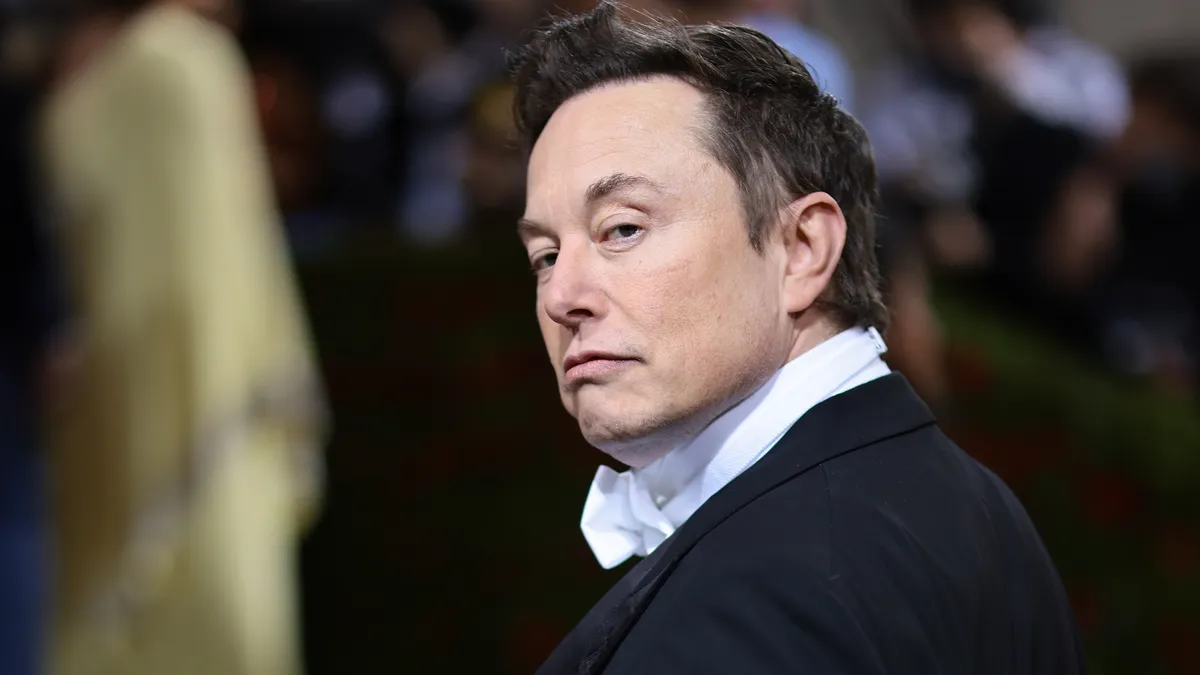Dive Brief:
- Elon Musk is unlikely to show Twitter breached their merger agreement even if the company has made misleading representations on the percentage of accounts that are bots, lawyers who’ve looked at the conflict say.
- Twitter is in the better position because the burden is on Musk to show Twitter is in material breach of the contract terms by lying about its spam figures, Tulane Professor of Corporate Governance Ann Lipton told CNBC.
- Even in the unlikely event Twitter was trying to be misleading on the percentage of bots, Musk will have to show the false information poses a long-term threat to the company’s earnings potential, and nothing that’s come out about the dispute so far supports that. “He has yet to put forth evidence that that is in fact the case,” Lipton said.
Dive Insight:
Based on an early July filing from Musk’s lawyers in which Musk withdrew his offer, his arguments will face a steep hurdle in court, says Adam Sterling, executive director of the Berkeley Center for Law and Business.
“He makes a number of legal arguments — I think all of questionable standing,” Sterling told CNBC. He “first focused on bots on the platforms but also performance of the company, so he’s kind of throwing all these arguments out there.”
Buyer’s remorse
Musk sought information from Twitter on fake accounts shortly after he signed a binding agreement in April to buy the company for $54.20 a share, a roughly 38% premium over the company’s price of just under $40 at the time. The company’s share price as of June 11 was roughly $33, increasing the financial risk of the deal to Musk at the same time the value of the shares of his own companies, including Tesla, have dropped.
Twitter released data showing about 5% of its accounts are bots but Musk has said he believes it could be as much as 20% of the company’s accounts, although reports say he hasn’t provided support for the claim.
“20% fake/spam accounts, while 4 times what Twitter claims, could be *much* higher,” Musk said in a May 17 tweet.
Analysts have speculated that Musk’s bot concern is a pretense for getting out of the deal after tech stocks plummeted shortly after the deal was signed.
It sounds like a “dog ate the homework” excuse for canceling the deal, Dan Ives of Wedbush Securities told The Economist.
To help them get through the battle, Twitter has reportedly hired Wachtell, Lipton, Rosen & Katz to represent it, a firm notable for the role of the founding partner, Martin Lipton, in creating the so-called poison pill that Twitter initially used to hold off Musk’s offer, according to The Verge. The publication also reported that Musk has hired Quinn Emanuel Urquhart & Sullivan, which has managed several of his lawsuits, including his battle with the Securities and Exchange Commission (SEC) over unsubstantiated information he included in tweets that affected Tesla’s stock price.
Musk and Twitter are both subject to a $1 billion fee if one of them walks away. Twitter has said it’s prepared to take Musk to court if he tries to get out of the deal.











